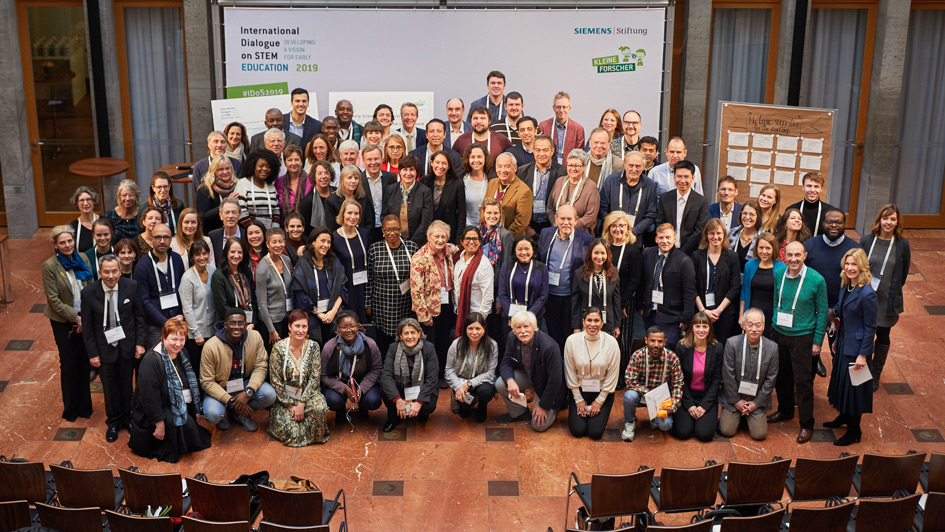Today in Berlin, 120 education experts from more than 30 countries have presented an international position paper: “Using Science to Do Social Good – STEM Education for Sustainable Development.” These experts support a shift in the STEM education sector (science, technology, engineering, mathematics) toward recognition of societal context and incorporation of the United Nations Sustainable Development Goals. To guarantee a livable future for everyone, future education systems will need to provide STEM education that promotes critical thinking and conscientious action.
Academic, policy, and civil society representatives from international STEM education initiatives have gathered at the second edition of the “International Dialogue on STEM Education“ (IDoS) in Berlin on 5 and 6 December. Among the participants at the 2019 conference is Prof. Andreas Schleicher, Director of Education and Skills at the OECD. At the same time the UN Climate Conference in Madrid seeks political solutions to man-made climate change, guests at IDoS are examining how STEM education can enable children to make sustainable contributions to society.
“If you look around at what is going on in the world, the need for cross-generational cooperation is clear. Equally clear is that STEM education will form the foundation of the 21st century,” said Dr. Nathalie von Siemens, managing director at Siemens Stiftung, which puts on the conference along with the foundation “Haus der kleinen Forscher” (Little Scientists’ House). She adds: “The challenge of the century for our education system is creating pedagogical concepts in STEM education that do more than teach knowledge – they must also teach problem solving, critical thinking, creativity, and social skills.”
This kind of STEM education helps children take control of their own fate in a complex world, growing up to be conscientious adults who seek answers for global challenges that stave off local and global consequences.
The debate surrounding fake news and scientific skepticism is another area where the role of good STEM education becomes clear: “Scientific findings allow us to make objective decisions. We want to give children this awareness right from the beginning,” said Michael Fritz, Executive Manager of “Haus der kleinen Forscher.” “The best approach is inquiry-based learning.”



